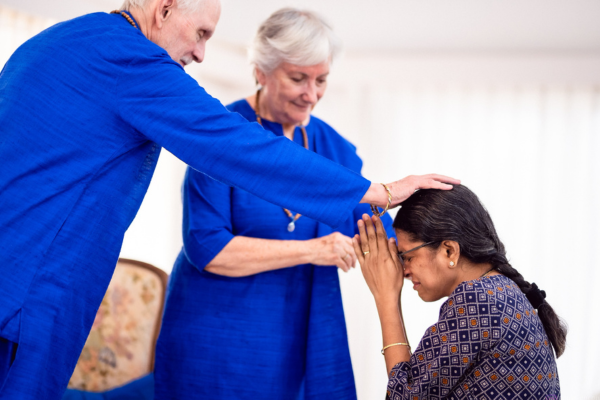How Can I Best Help Them?
Recently a friend wrote asking: “How can I help family members who are going through a difficult time, or have a sour relationship with one another, without being affected by the situation personally? How does one know when to intervene and support, and when to be an observer and send support from a distance?”
We have all faced this dilemma in one form or another. With my friend’s permission, I’ll share with you some thoughts that I offered her about the art of helping others while remaining unaffected by their problems.
-
Try to meditate before talking with them. One of the fruits of meditation is the ability to detach yourself from the events around you and maintain a state of inner equilibrium under all circumstances. This is by no means easy, but needs to be cultivated continuously with energy and determination. During your meditation before meeting them, visualize them surrounded by God’s light and love.
-
Accept people as they are, while at the same time relating to their own higher nature. If people feel accepted, it allows them the space to self-correct the behaviors that are causing them unhappiness. While meeting with them, pray and see them resting in their true self—divine love and wisdom. Unconditional acceptance is what God offers all of His children. Try to be a channel of this for others.

-
Don’t give direct advice unless they ask; rather, listen attentively so that they feel open to share with you. Often an open ear is all people are really seeking. You can inwardly ask God to guide them from within themselves. If they do ask for advice, present it in a positive, nonjudgmental way. A beautiful passage from Master in this regard is: “I am the servant ready to serve all needy minds with my simple advice, with my gifts of healing truth, and with my humble wisdom gathered in the shrine of silence.”
-
If you feel yourself getting engaged in negativity, quickly and consciously detach yourself. Be attentive to your own reactions, and inwardly strive to remain centered. Without seeming to withdraw, hold your mind at the spiritual eye. You can also quietly practice regular breathing: inhaling, holding the breath, and exhaling to the same count. Yoganandaji wrote: “When fear or anger or any kind of suffering comes to me, I will view it as a spectator. I will separate myself from my experiences. At all costs I will endeavor to retain my peace and happiness.”
-
Always send love. Don’t withhold this no matter how difficult the situation. Once a friend of ours was working as a doctor in an emergency room. Late one night, the police brought in a drunken, homeless man who had fallen and broken his arm. He was screaming, both with pain and fear, and it took two policemen to hold him down. To their amazement, our friend told the policemen to leave the treatment room—that she could handle him alone. Surrounding him in love, our friend was able to get the man to calm down so that she could set his arm. Afterwards the poor man looked at her beseechingly with eyes filled with years of loneliness and want, and asked, “Will you be my doctor?” He felt her love surrounding him—a feeling he hadn’t known for a long time. Healing can take place on many levels. By expressing love and forgiveness, not only can we help others, but we can remain uplifted as well.
-
Finally, offer them to God for His help. Remember that God is always in charge of guiding every soul to inner freedom. We are all on a journey to find the truth of who and what we really are. Offer a helping hand to others, when you can, but remember that ultimately, true happiness and freedom come when we allow God to guide our life.
I’ll close with these words of Master’s: “I will be a fisher of souls. I will catch the ignorance of others in a net of my wisdom and offer it for transmutation to the God of all gods.”
With loving friendship,
Nayaswami Devi